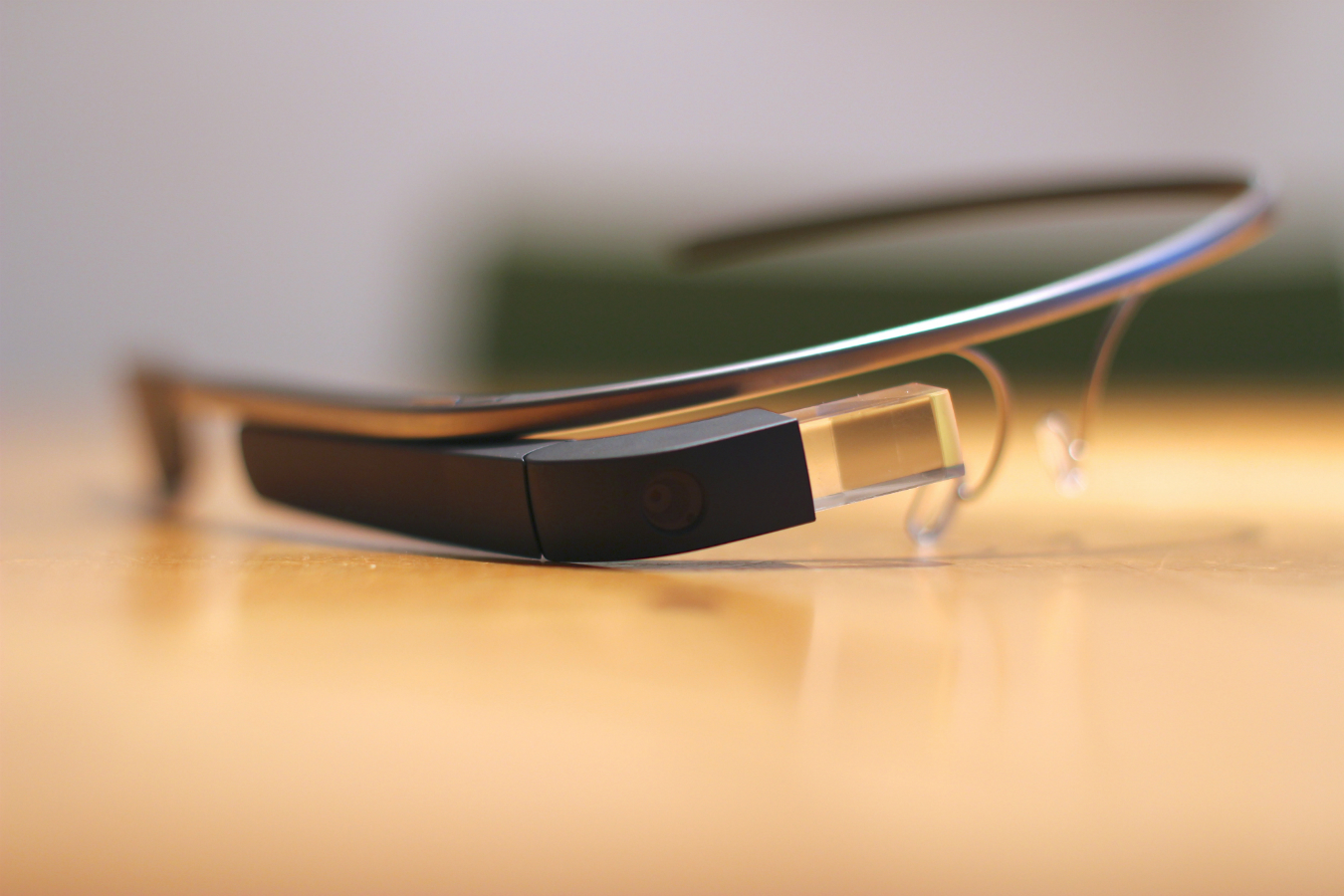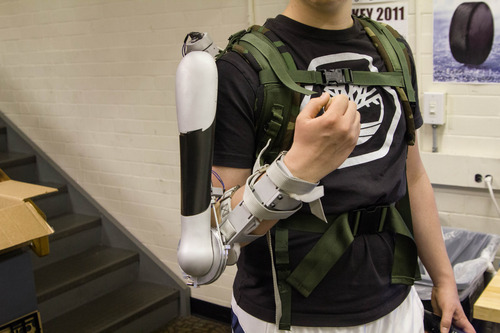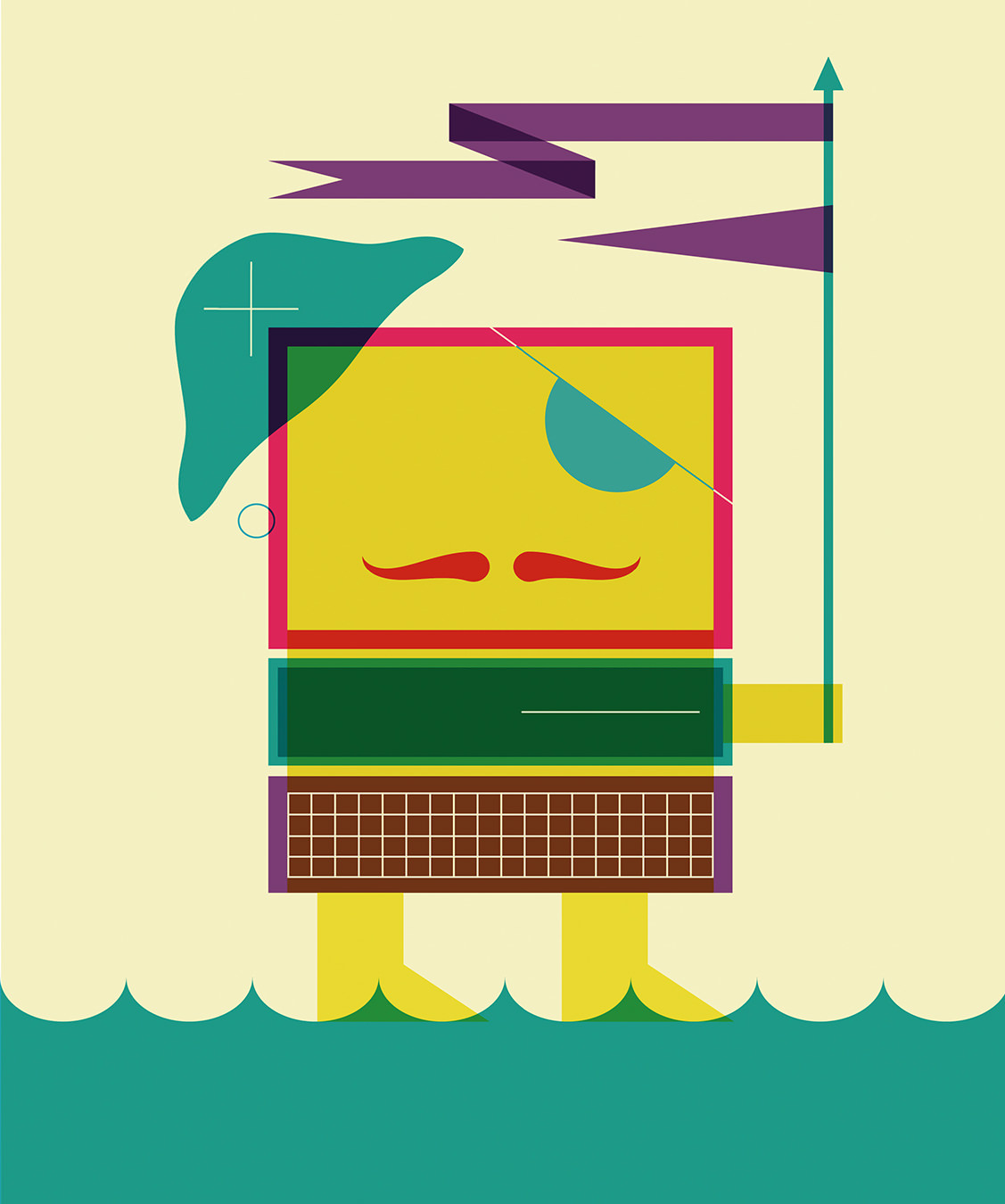We Can Build You
Rethinking the dividing line between mankind and machine.

The first time you see Google Glass in real life, sitting astride some stranger’s nose, it’s hard not to be taken aback by the idea that the future—some form of it, at least—has indeed arrived.
And not just sartorially. Sure, the designers got the whole “geek-chic” thing right, with a cool, sleek, minimalist look that makes the wearer seem more casually detached than cutting edge. And no denying that the specs sound cool—in addition to the heads-up display over the right eye, Google Glass comes with a touchpad interface, a five-megapixel HD-capable camera, and 16 GB of memory. But there’s a big idea too: that instead of being a tool or utensil we pick up and use, technology can be a part of ourselves.
Google is just the latest big tech company to get obsessed with the idea of breaking down the physical barriers between you and your technology. Companies such as Samsung, Apple, Microsoft, and now Facebook are also putting money behind the idea that technology can be a part of things you normally take for granted. By turning your watch, your glasses, your contact lenses, your hearing aid, or your jewellery into a connection device, your body becomes a digital interface.
Beyond the consumer electronics, researchers are working hard to extend technology’s reach to the final frontier: the human mind. Last year, a team of student engineers from the University of Pennsylvania garnered $75,000 in prize money for inventing the “Titan Arm”, a battery-powered robotic arm that enables the wearer to lift an additional 40 pounds. Meanwhile, a team of various international institutions is putting together a final prototype of a fully mind-controlled exoskeletal suit based on research begun in the Nicolelis Laboratory at Duke University. The suit will debut at the upcoming World Cup in Brazil, where a paraplegic patient is set to perform the tournament’s ceremonial first kick. Call it one small step for a man; one giant leap for technology.
Not that any of this is a new topic, at least, as far as the imagination goes. An entire sub-genre of science fiction novels and movies ranging from the intelligent (Blade Runner) to the pulpy (Star Wars) to the campy (RoboCop) have raised intriguing questions about the increasingly blurry line between high-tech and human. Even today, the topic continues to provide plenty of fodder for scriptwriters: this year’s Transcendence is an eerily prescient look at the difference (whether it be real or perceived) between natural and artificial intelligence, between man and Übermensch. At what point, exactly, does technology stop enriching one’s life and instead overwhelm one’s life? At what point do the “enhancements” take over? We’re about to find out.
Google Glass photo by Wilbert Baan via Flickr. Titan Arm photo courtesy of the University of Pennsylvania.





